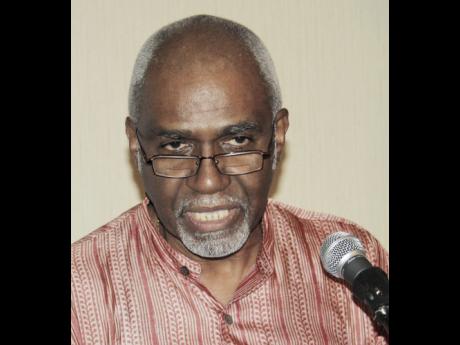‘They were right to fight’ - Justice Robinson backs Paul Bogle and the martyrs’ action 150 years ago
One hundred and fifty years after the Morant Bay Uprising, which was led by Paul Bogle, support for the actions of the national hero and his followers has come from a man who has spent most of his life championing the fight for human rights and justice.
Justice Patrick Robinson, the first Jamaican and Caribbean jurist to sit on the International Court of Justice at The Hague, Holland, has backed Bogle's action on October 1865 when he led a fight for social and legal justice.
According to Robinson, in this fight, violence was not out of place.
"Like Sam Sharpe and his followers, Paul Bogle and his followers would have had every right to protest and take action against a corrupt and dehumanising political system," said Robinson, during the Paul Bogle and the Martyrs Lecture which was held at the Morant Villa Hotel, Wharf Road, Morant Bay, last Thursday.
The lecture, which was staged by the St Thomas Parish Development Committee and held under the theme: 'Don't pay the fine, Appeal: Embracing the broader justice for which Paul Bogle fought and died', was one of several landmark events to commemorate the 150th anniversary of the uprising.
"It matters not to me whether Bogle and his followers had violence on their minds on that day. I can't prove whether they did or did not, but, by God, I certainly hope that they did," said Robinson with great conviction, to rapturous applause.
Robinson, who is a judge of the International Court of Justice, in defending his stance said, "If ever violence was warranted, it would have been against a regime totally devoid of any moral authority, and the God that Bogle and his followers served would not have condemned that course against the oppressive regime they had to face in 1865."
The former president of the International Criminal Tribunal for Yugoslavia, who had also previously served as a member and president of the Inter-American Commission on Human Rights and was also a member of the International Law Commission, hastened to point out that he is not advocating the use of violence in today's society.
"And lest anyone interpret what I've said as an endorsement of violence in today's Jamaica, let me say categorically that there is nothing, absolutely nothing in our present condition that comes even close to the systemic breach of the fundamental human rights of our ancestors through enslavement, colonisation, exploitation and the denial of the right to self-determination," said Robinson.
Robinson, who was sponsored to be the guest lecturer by Jamaica National Building Society, said although he respect historians and other commentators such as Devon Dick, who has authored the book The Cross and the Machete: the Native Baptists of Jamaica - Identity, Ministry and Legacy, about the Morant Bay uprising, things have to be looked at in context.
"As much as I respect the historians and other commentators whose purpose is to establish the lawfulness or unlawfulness of the conduct of Bogle and his followers, I take an entirely different approach."
He further stated that the assessment of the worth of our ancestors should be grounded on whether they acted within the "narrow confines of a legal system that was from top to bottom brutish, corrupt, immoral and amoral", and that they acted against a political system that must have been "one of the most ruthlessly exploitative in the history of mankind".
Robinson, who worked for 30 years in the Jamaica Government legal service, serving in the Office of the Director of Public Prosecutions, and the Attorney General's Department, started the lecture by looking at the background and the conditions that led to the events of 1865.
He examined the legacy of Bogle and how that legacy is to be interpreted by us against the background of the gross injustices faced by the black poor people at that time.
He used the second half of the lecture to examine the implications of the Morant Bay Uprising by looking at economic, political and social implications for present-day Jamaica.
150 reasons
to celebrate
The activities to mark the 150th anniversary of the Morant Bay Uprising continue this weekend with the St Thomas Homecoming.
• Friday night - Lyming on the Lagoon. This will be a get together at the Casa Lagoona hotel with Merritone Disco, which originated in St Thomas and is marking its 65th anniversary.
• Saturday - Farmer's Market at the Rudolph Elder Park during the day, while Merritone will be playing at the Rudolph Elder park in the night.
• Sunday - Remembrance Day service at the St Thomas Parish Church and wreath-laying at the cenotaph; brunch on the beach at the Golden Shore hotel and ending with a beach party at Lyssons beach.
All the hotels and restaurants in Morant Bay are offering special rates for the weekend.


